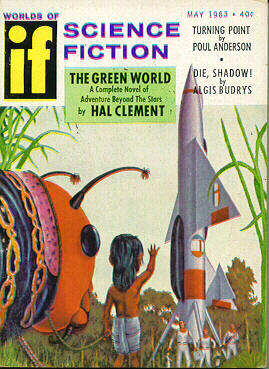Turning Point by Poul Anderson
This story from 1963 lives up to its title and is an interesting read in the context of also showing a turning point in how science fiction writers wrote about humans and aliens.

A human space exploration team discovers an Earth-like planet with human-like intelligent species. Their level of technology is around the stone age, but they quickly establish communication and the natives to the planet turns out to be very quick learners. Like extremely quick. Over the span of just a couple of days they go from being presented with the invention of the wheel to using it for quite advanced bandwagons. The humans, while impressed, gets somewhat scared. They see these people as a potential rival that might overtake humans in very few years and dominate the galaxy. Drastic measures, such as total genocide, are discussed but dropped again.
What I personally found interesting about this 60 year old story, is that it is built around a human mindset towards aliens that we don’t see much anymore in fiction. I grew up with stuff like Star Trek that generally has a positive and optimistic view of alien species - where the default assumption is that advanced species will be peaceful. Of course this story is not the first to challenge the view of the old pulps where humans are entitled to dominate the galaxy, this anthology also has The Aliens by Murray Leinster from 1959, but it is a good example of the shift in how aliens, and more to the point - how humans viewed other species, was portrayed in science fiction at the time.
I found the ending to be bit rushed but liked the overall more positive tone, so definitely worth a read.
Read in The World Turned Upside Down
Original published in Worlds of If, May 1963
ISFDB Link
Read the story at drabblecast.org
Rating: 4